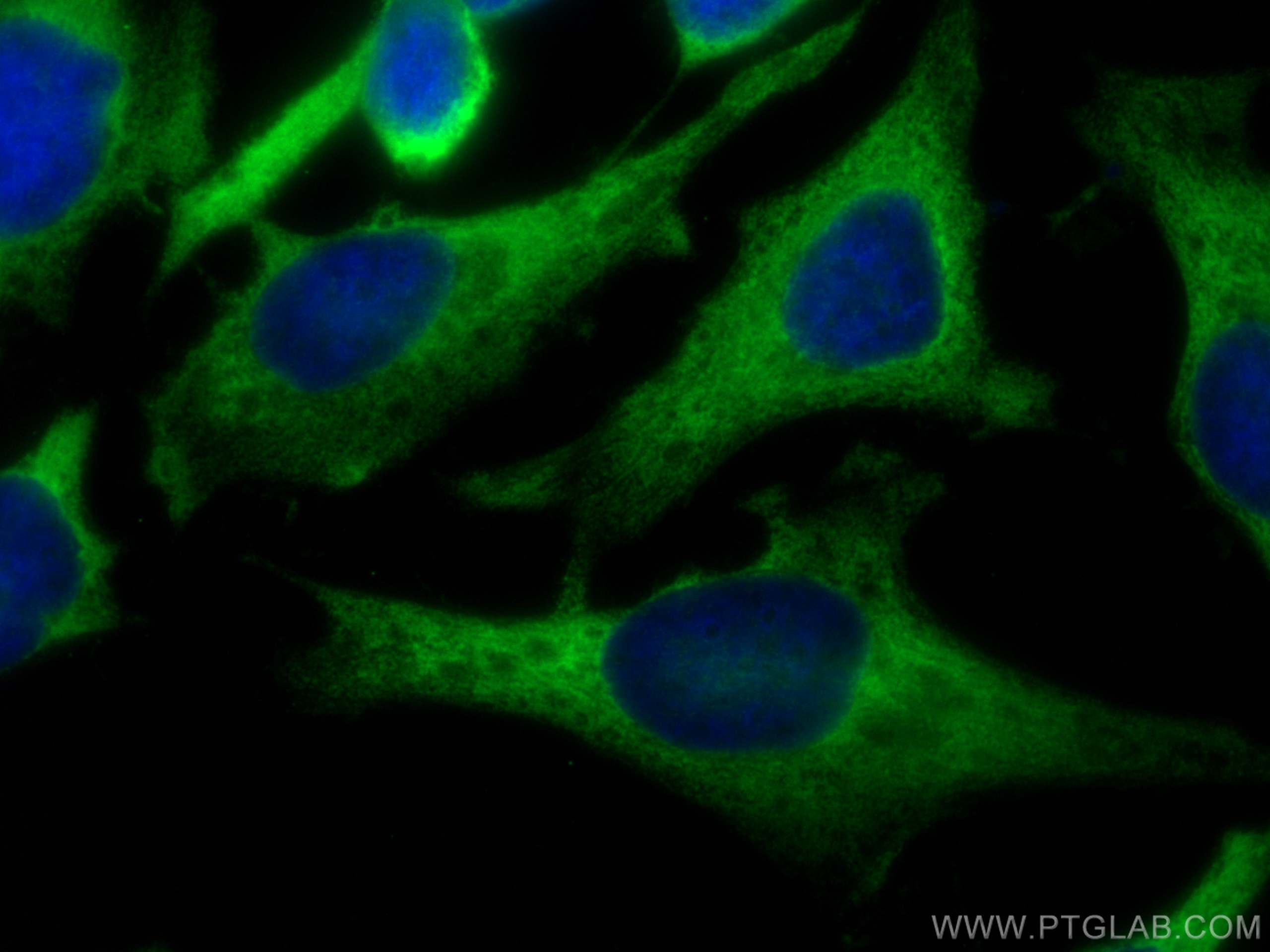Tested Applications
| Positive IF/ICC detected in | HeLa cells |
Recommended dilution
| Application | Dilution |
|---|---|
| Immunofluorescence (IF)/ICC | IF/ICC : 1:50-1:500 |
| It is recommended that this reagent should be titrated in each testing system to obtain optimal results. | |
| Sample-dependent, Check data in validation data gallery. | |
Product Information
CL488-68148 targets EEF1G in IF/ICC applications and shows reactivity with Human, Pig, Rabbit samples.
| Tested Reactivity | Human, Pig, Rabbit |
| Host / Isotype | Mouse / IgG2b |
| Class | Monoclonal |
| Type | Antibody |
| Immunogen |
CatNo: Ag0218 Product name: Recombinant human EEF1G protein Source: e coli.-derived, PGEX-4T Tag: GST Domain: 140-400 aa of BC006520 Sequence: GLLDAYLKTRTFLVGERVTLADITVVCTLLWLYKQVLEPSFRQAFPNTNRWFLTCINQPQFRAVLGEVKLCEKMAQFDAKKFAETQPKKDTPRKEKGSREEKQKPQAERKEEKKAAAPAPEEEMDECEQALAAEPKAKDPFAHLPKSTFVLDEFKRKYSNEDTLSVALPYFWEHFDKDGWSLWYSEYRFPEELTQTFMSCNLITGMFQRLDKLRKNAFASVILFGTNNSSSISGVWVFRGQELAFPLSPDWQVDYESYTWR Predict reactive species |
| Full Name | eukaryotic translation elongation factor 1 gamma |
| Calculated Molecular Weight | 50 kDa |
| Observed Molecular Weight | 50 kDa |
| GenBank Accession Number | BC006520 |
| Gene Symbol | EEF1G |
| Gene ID (NCBI) | 1937 |
| RRID | AB_3084419 |
| Conjugate | CoraLite® Plus 488 Fluorescent Dye |
| Excitation/Emission Maxima Wavelengths | 493 nm / 522 nm |
| Form | Liquid |
| Purification Method | Protein A purification |
| UNIPROT ID | P26641 |
| Storage Buffer | PBS with 50% glycerol, 0.05% Proclin300, 0.5% BSA, pH 7.3. |
| Storage Conditions | Store at -20°C. Avoid exposure to light. Stable for one year after shipment. Aliquoting is unnecessary for -20oC storage. |
Background Information
Eukaryotic translation elongation factor 1 (EEF1G, synonym: EF1G) is a subunit of the elongation factor-1 complex, which is responsible for the enzymatic delivery of aminoacyl tRNAs to the ribosome. This subunit contains an N-terminal glutathione transferase domain, which may be involved in regulating the assembly of multisubunit complexes containing this elongation factor and aminoacyl-tRNA synthetases.
Protocols
| Product Specific Protocols | |
|---|---|
| IF protocol for CL Plus 488 EEF1G antibody CL488-68148 | Download protocol |
| Standard Protocols | |
|---|---|
| Click here to view our Standard Protocols |




